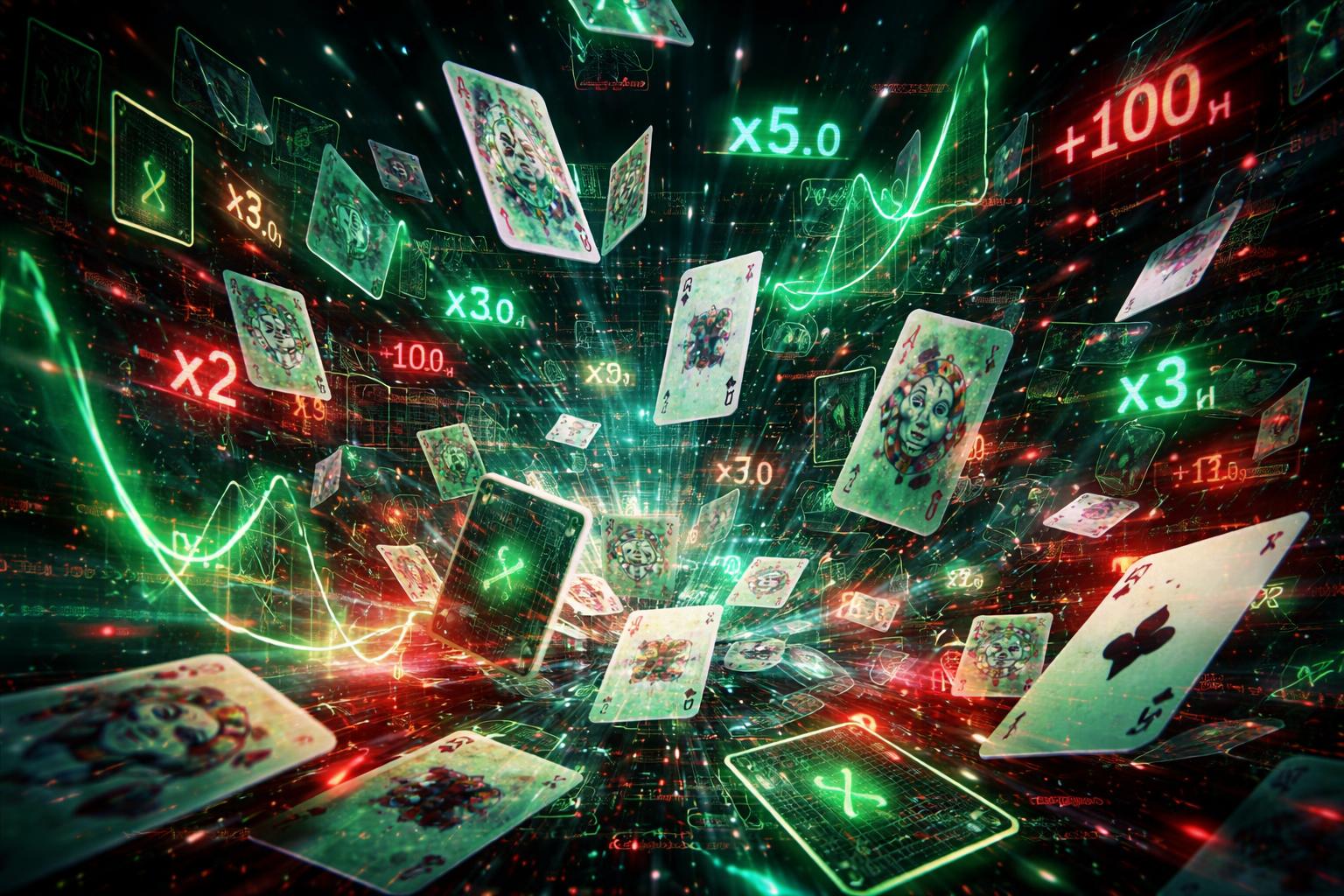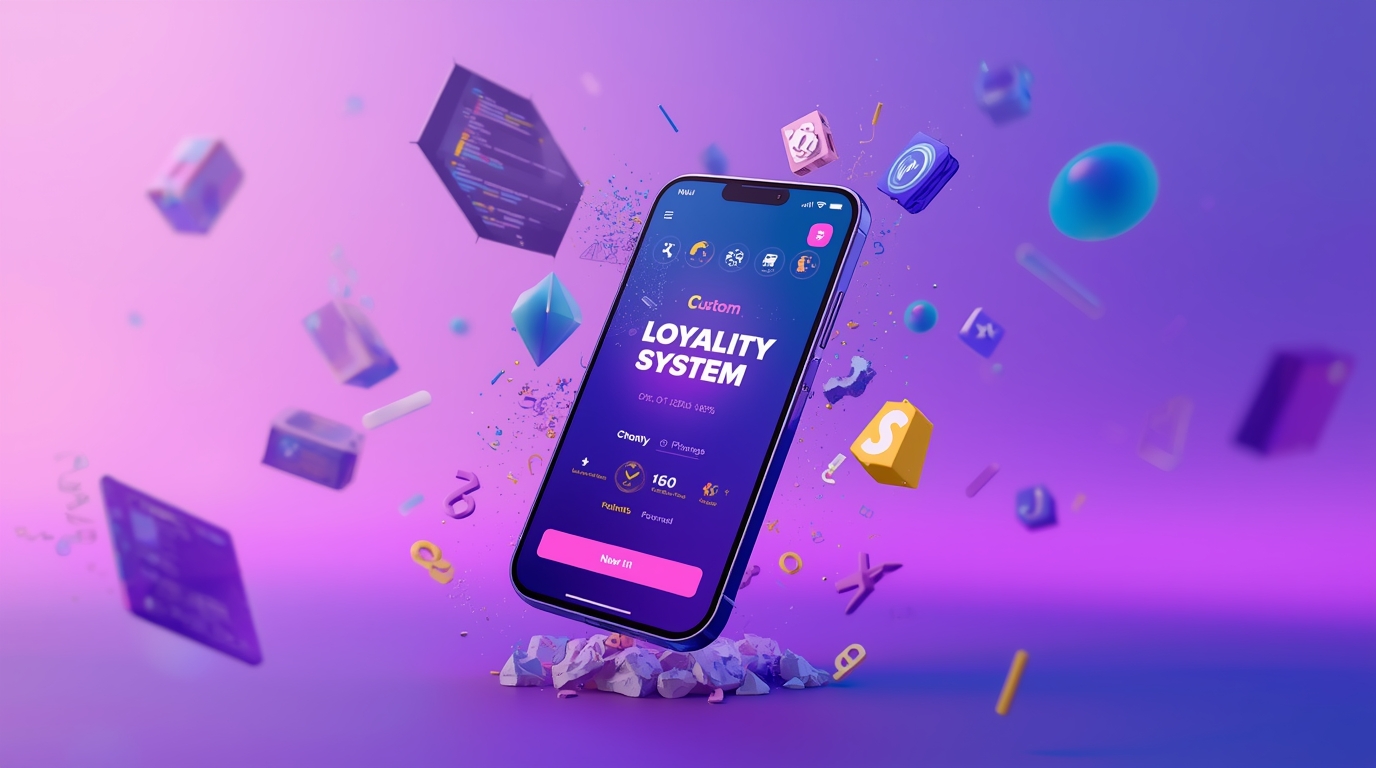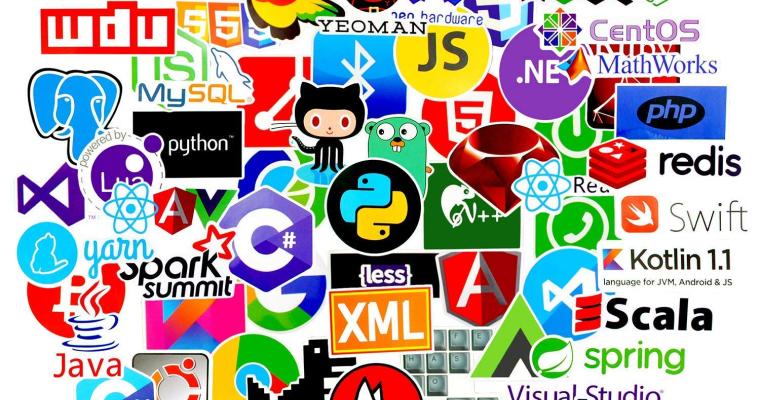USA, Canada, Europe, Australia, and the UK gaming companies are rapidly entering the Web3 game development era. The demand for robust, secure, and creative Web3 game development services has never been higher. In this guide, you’ll find actionable advice and expert insights on how to select the right web3 game development company in the USA, including practical cases and up-to-date comparisons for 2025.
Web3 Game Development in the Modern Gaming Landscape
Web3 game development is transforming the gaming industry across North America, Europe, Australia, and the UK. Studios now leverage blockchain, decentralized assets, and NFT-driven economies to deliver new gameplay experiences, better player ownership, and direct monetization models. According to industry research and our experience at EJaw Studios, top gaming companies that integrate web3 technologies into their products see a 300-400% increase in user retention and a notable uptick in average revenue per user compared to traditional web titles.

Game studios and publishers that want to create play-to-earn (P2E) games, NFT marketplaces, or metaverse gaming worlds must partner with a reliable Web3 game development company in the USA. The right choice will affect your project’s cost, speed, scalability, and long-term success. Below, we break down the key criteria, top companies, and practical insights to help you select the best Web3 game developers for your needs.
What Is Web3 Game Development? Key Terms & Industry Trends
The web3 gaming revolution is built on foundational technologies that are reshaping how players interact with virtual worlds. Understanding these core concepts is essential for any gaming company looking to enter the decentralized gaming space. The industry has evolved from simple blockchain integrations to sophisticated ecosystems where players truly own their digital assets and can participate in game governance.
Current market data shows that web3 gaming represents one of the fastest-growing segments in both the blockchain and gaming industries, with total market capitalization exceeding $25 billion in 2025. The convergence of artificial intelligence, decentralized finance (DeFi), and immersive gaming experiences is creating unprecedented opportunities for developers and players alike.
Web3 Game Development: Core Concepts
- Blockchain Game Development: Integrates smart contracts and tokenized assets for real digital ownership and transparent in-game economies.
- Decentralized Game Development: Removes single points of failure, allowing players to control assets and, sometimes, game governance (DAO mechanics).
- NFT Game Development: Uses non-fungible tokens for unique character skins, weapons, or virtual land, enabling secondary trading and player-driven economies.
- Play-to-Earn (P2E): Empowers players to earn crypto or NFTs through in-game achievements or participation.
- Web3 Gaming Platforms: Infrastructure and SDKs (Software Development Kits) for building, launching, and scaling decentralized games.
- Metaverse Game Development: Creates persistent 3D worlds where users interact, play, and trade assets across interoperable games.
- AI in Web3 Games: Adds intelligent NPCs, dynamic content, and personalized experiences using decentralized AI models.
Industry Landscape: Why Web3 Is Disrupting Gaming
The traditional gaming model is being challenged by web3 technologies that offer players unprecedented control over their gaming experience. Unlike conventional games where all assets and progress remain locked within proprietary systems, web3 games enable true digital ownership through blockchain technology. This paradigm shift is attracting both indie developers and major gaming corporations who recognize the potential for new revenue models and enhanced player engagement.
The disruption extends beyond simple asset ownership. Web3 gaming introduces concepts like decentralized autonomous organizations (DAOs) for game governance, interoperable assets that work across multiple games, and play-to-earn mechanisms that can provide real economic value to players. These innovations are particularly appealing in markets where gaming serves as both entertainment and income generation.
On the basis of our studio’s observations, studios adopting web3 game development services report:
- Higher engagement: Player ownership and open economies motivate longer play sessions and community involvement.
- New revenue: NFT and token-based models unlock new monetization streams beyond classic in-app purchases.
- Resilience: Decentralized systems reduce risks of hacking or asset loss.
Leading US and global gaming brands have begun investing in Web3 technologies, with top companies like Juego Studios, Antier, and Unicsoft setting industry benchmarks. The USA, Canada, Europe, Australia, and the UK have seen the strongest demand for these solutions in 2025.
Top Web3 Game Development Companies in the USA: A Comparative Overview

Selecting the right development partner is crucial for web3 gaming success. The American market has produced several standout companies that combine traditional game development expertise with cutting-edge blockchain technology. These studios have proven track records of delivering successful web3 games that achieve both technical excellence and market success.
The companies featured in our analysis have been evaluated based on their technical capabilities, portfolio strength, client satisfaction, and market reputation. Each brings unique strengths to different aspects of web3 game development, from smart contract architecture to user experience design.
Leading Studios & Their Specializations
| Company | Headquarters | Specialties | Notable Projects | Client Ratings |
|---|---|---|---|---|
| Juego Studios | USA | Web3, NFT, Metaverse, Play-to-Earn, Blockchain Integration | 100+ successful web3 games | 4.8/5 (IGN, Gamespot) |
| Antier | USA | Decentralized Game Development, Smart Contracts, DeFi Integration | Multiple metaverse and P2E projects | 4.7/5 (Polygon) |
| Unicsoft | USA/Global | Web3 Consulting, Blockchain Game Development, NFT Marketplaces | 100+ web3 launches | 4.6/5 (IGN) |
| GamesD.App | USA | NFT Multiplayer, Cross-game Asset Trading, Story-driven Games | Asset-based multiplayer games | 4.5/5 (Gamespot) |
| Webgen Technologies | USA | Cross-chain NFTs, DAO, Tokenomics Design | Metaverse-ready titles | 4.5/5 (Eurogamer) |
| INORU | Global | Custom NFT, P2E, RPG, Racing, Battle Games | Multiple genres delivered | 4.3/5 (Kotaku) |
How Do These Companies Stand Out?
- Juego Studios: Recognized for technical depth, rapid prototyping, and scalable NFT-based economies.
- Antier: Focuses on secure, full-cycle development, including smart contract audits and user onboarding.
- Unicsoft: Deep consulting for startups and enterprises, strong in cross-chain and tokenomics.
- GamesD.App: Known for creative game mechanics and strong blockchain integration.
Key Criteria for Choosing a Web3 Game Development Company in the USA
The selection process for a web3 game development partner requires careful consideration of multiple factors that go beyond traditional game development capabilities. The unique requirements of blockchain integration, tokenomics design, and decentralized infrastructure demand specialized expertise that not all development studios possess.
Success in web3 gaming depends on finding a partner who understands both the technical complexities of blockchain development and the fundamental principles of engaging game design. The best web3 game development companies seamlessly blend these skills to create experiences that feel natural to players while leveraging the full potential of decentralized technologies.
Technical Capabilities & Technology Stack
- Blockchain Protocols: Ethereum, Solana, Polygon, BNB Smart Chain, Layer-2s.
- Game Engines: Unity, Unreal Engine, Godot (with web3 plugins).
- Smart Contracts: Solidity, Rust, Move (for asset management and in-game logic).
- NFT Standards: ERC-721, ERC-1155, custom metadata.
- AI & Analytics: Integration with decentralized AI frameworks for adaptive gameplay.
Experience, Reputation, and Portfolio
- Proven launches of successful blockchain games across genres (RPG, RTS, simulation, sports, action).
- Track record with play-to-earn economies and tokenomics.
- Positive client ratings and reviews on platforms like IGN, Gamespot, and Polygon.
- Transparent references and case studies with real-world metrics.
Customization and Scalability
- Ability to create games with unique mechanics, cross-chain asset support, and modular feature sets.
- Support for large player bases, global markets (USA, Canada, Europe, Australia, UK), and multi-platform deployment.
Security, Compliance, and Support
- Smart contract audits, anti-fraud systems, and secure wallet integration.
- Ongoing QA, patches, and user support post-launch.
- Compliance with US and international regulations for in-game assets and tokens.
Pricing and Business Model
- Transparent project-based, milestone, or revenue-sharing contracts.
- Clear terms for intellectual property and asset ownership.
Web3 Game Development Services: What to Expect
Modern web3 game development encompasses a comprehensive suite of services that extend far beyond traditional game creation. Leading development companies provide end-to-end solutions that cover everything from initial concept design to post-launch community management and ongoing blockchain infrastructure maintenance.
The scope of services has expanded significantly as the industry has matured. Today’s web3 game development projects require expertise in areas such as tokenomics modeling, smart contract security, decentralized governance systems, and cross-chain compatibility. Understanding what to expect from a full-service web3 development partner helps ensure your project receives the comprehensive support needed for long-term success.
Core Offerings from Leading Web3 Game Companies
- Concept art, game design, and interactive prototyping.
- Blockchain integration for asset management and tokenized economies.
- Smart contract development and on-chain logic.
- NFT minting, trading, marketplace setup.
- Metaverse world building and multiplayer logic.
- AI-driven features for NPCs, dynamic quests, and personalization.
- Web3 game marketing and community building (social campaigns, influencer partnerships).
- Cross-platform deployment (PC, mobile, web).
Specialized Web3 Game Design Platforms
Many studios utilize proprietary or third-party web3 game design platforms to accelerate prototyping and asset creation. Examples include:
- Web3 SDKs for Unity and Unreal Engine.
- Custom NFT generators and marketplace APIs.
- Analytics dashboards for on-chain player activity.
Case Studies: Real Results from Web3 Game Development
Real-world performance data provides the most valuable insights into the potential of web3 gaming projects. The following case studies demonstrate how strategic implementation of blockchain technologies can drive exceptional user engagement, revenue growth, and community building. These examples represent actual projects that have achieved measurable success in the competitive gaming market.
The diversity of successful web3 gaming implementations shows that blockchain technology can enhance virtually any game genre when applied thoughtfully. From play-to-earn RPGs to metaverse sports simulations, the key to success lies in creating meaningful player value through decentralized ownership and transparent economies.
Practical Examples from Our Studio and Industry Leaders
Case 1: Play-to-Earn RPG — In our studio, we developed a cross-chain play-to-earn RPG for a US publisher, reaching 180,000 active users in the first six months. NFT sales generated over $950,000 in revenue. The average ROI for the publisher was 340% within six months, driven by player secondary-market trading and in-game token rewards.
Case 2: Metaverse Sports Game — Collaborating with a Canadian brand, we launched a metaverse sports game. Using decentralized avatars and NFT stadiums, the project reached 80,000 MAU and secured partnerships with esports influencers in the UK and Europe.
Case 3: AI-Driven NFT Game — A client from Australia requested AI-powered NPCs and quest generators for their NFT action game. This led to a 30% increase in player retention month-over-month compared to genre averages.
Other Industry Examples: Gamespot reports that studios using full-lifecycle web3 services from leaders like Juego Studios and Antier deliver higher engagement and user monetization rates than legacy games.
How to Evaluate a Web3 Game Development Company: A Step-by-Step Checklist
| Step | Key Actions | What to Look For |
|---|---|---|
| 1. Portfolio Review | Study recent launches, genres, and platforms | Diversity, user metrics, NFT mechanics, cross-chain support |
| 2. Technical Interview | Ask for details on smart contract, blockchain, and NFT integration | Depth of expertise, use of audited code, modular design |
| 3. References & Reviews | Contact past clients, check ratings on IGN, Gamespot, Polygon | Consistent delivery, communication, post-launch support |
| 4. Proposal Analysis | Compare scope, timelines, cost, and IP terms | Transparency, clear milestones, fair pricing |
| 5. Pilot Project | Run a limited-scope prototype | Technical quality, workflow fit, team synergy |
Additional Recommendations:
- Insist on transparent milestones, QA processes, and post-launch support in all contracts.
- Check if the studio has experience with your target platforms (mobile, PC, console, browser).
- Review documentation for compliance and security (especially for US, Europe, and UK markets).
Trends in Web3 Game Development for 2025: What to Watch
The web3 gaming landscape continues to evolve rapidly, with new technologies and player expectations shaping the direction of development priorities. Understanding these trends is essential for making informed decisions about technology investments and development strategies. The most successful web3 games of 2025 will be those that anticipate and adapt to these emerging patterns.
Innovation in web3 gaming is being driven by advances in artificial intelligence, improved blockchain infrastructure, and growing player sophistication. As the market matures, we’re seeing a shift from experimental proof-of-concepts to polished, player-focused experiences that compete directly with traditional gaming titles.
Emerging Technologies & Player Expectations
- AI in Web3 Games: Studios integrate decentralized AI for dynamic NPCs, adaptive quests, and player personalization.
- Metaverse Integration: Persistent worlds with asset interoperability across games and platforms.
- On-Chain Analytics: Advanced tracking of user behavior, asset movement, and in-game economy health.
- Cross-Device Gaming: Games accessible across mobile, PC, and VR with seamless asset transfer.
- Sustainable Tokenomics: Focus on economic balance and regulatory compliance, especially for US and UK audiences.
Expert Quote:
“Web3 game development is not just hype. It is the next frontier for building truly engaging, player-driven economies and experiences. Studios that invest in blockchain game development and robust NFT ecosystems will define the industry’s future.” — IGN Editorial, 2025
Player Ratings and Community Feedback: The USA & Global Perspective
Understanding player preferences and expectations across different markets is crucial for developing successful web3 games. Global player behavior varies significantly based on regional gaming cultures, regulatory environments, and economic conditions. American players, for instance, tend to prioritize security and regulatory compliance, while European players focus heavily on data privacy and sustainable gaming economies.
Community feedback has become an integral part of web3 game development, with many successful projects incorporating player input into governance decisions through DAO mechanisms. This participatory approach to game development creates stronger community bonds and helps ensure long-term project sustainability.
What Players Value in Web3 Games
- Real asset ownership and transparent trading systems
- Fair play-to-earn mechanics without pay-to-win elements
- Seamless wallet integration and user-friendly onboarding
- Cross-game asset compatibility and interoperability
- Strong community governance and DAO participation
- Regular updates and active developer engagement
Regional Preferences by Market
USA Market: Players prioritize security, regulatory compliance, and proven tokenomics models. American gamers are particularly interested in competitive multiplayer web3 games with esports potential.
European Market: Strong emphasis on data privacy, GDPR compliance, and sustainable gaming economies. European players favor story-driven RPGs and strategy games with NFT integration.
UK & Australia: Focus on innovative gameplay mechanics and cross-platform compatibility. These markets show high adoption rates for mobile-first web3 games.
Canada: Growing interest in metaverse experiences and virtual real estate games, with players actively participating in DAO governance systems.
Cost Analysis: Web3 Game Development Pricing in 2025
Understanding the financial investment required for web3 game development is essential for proper project planning and budgeting. Development costs vary significantly based on game complexity, blockchain integration requirements, and target market scope. The web3 gaming industry has matured to the point where reliable cost estimates can be provided based on project specifications and market standards.
Pricing in the web3 gaming sector reflects both traditional game development costs and additional blockchain-specific requirements such as smart contract development, security audits, and tokenomics design. While initial investment may be higher than traditional games, successful web3 titles often generate revenue through multiple streams including NFT sales, token appreciation, and decentralized marketplace fees.
Typical Project Costs by Complexity
Simple NFT Game (Card/Puzzle): $50,000 – $150,000
- Basic smart contracts, simple NFT mechanics
- 2-4 month development timeline
- Single platform deployment
Mid-Complexity P2E Game: $200,000 – $500,000
- Advanced tokenomics, marketplace integration
- 6-12 month development timeline
- Multi-platform support, moderate player base
AAA Metaverse Game: $1M – $5M+
- Complex world-building, AI integration
- 18-36 month development timeline
- Full ecosystem with multiple revenue streams
Factors Affecting Development Costs
- Blockchain network choice and gas optimization
- Smart contract complexity and audit requirements
- Art quality and 3D asset creation
- Multiplayer infrastructure and server costs
- Marketing and community building requirements
Future Outlook: The Evolution of Web3 Gaming
The web3 gaming industry stands at an inflection point where technological maturity is converging with mainstream market acceptance. As blockchain infrastructure becomes more efficient and user-friendly, the barriers to entry for both developers and players continue to decrease. This evolution is creating conditions for widespread adoption that could fundamentally reshape the gaming industry within the next few years.
Market analysts predict that web3 gaming will transition from a niche segment to a mainstream category as major gaming companies integrate blockchain features into their existing franchises. This mainstream adoption will likely be driven by improved user experiences, clearer regulatory frameworks, and proven economic benefits for both players and developers.
Predictions for 2025-2026
The web3 gaming sector is expected to mature significantly, with mainstream adoption driven by improved user experience and reduced technical barriers. Key developments include:
- Simplified Onboarding: One-click wallet creation and gasless transactions
- Regulatory Clarity: Clearer guidelines from US, EU, and UK regulators
- Infrastructure Scaling: Layer-2 solutions reducing transaction costs by 90%+
- Mainstream Integration: Traditional gaming companies launching web3 titles
- Enhanced AI: Personalized gaming experiences powered by decentralized AI
Recommendations for Game Publishers
- Start Small: Begin with simple NFT integrations before building complex economies
- Focus on Gameplay: Ensure core game mechanics are engaging beyond web3 features
- Plan for Scale: Design tokenomics that remain balanced with millions of players
- Prioritize Security: Invest in professional smart contract audits and security testing
- Build Community: Engage players in governance and development decisions
Selecting Your Web3 Game Development Partner
Choosing the right web3 game development company in the USA requires careful evaluation of technical expertise, portfolio strength, and market understanding. The companies highlighted in this guide—including Juego Studios, Antier, and Unicsoft—represent the current industry leaders, but your specific project needs should drive the final decision.
Key takeaways for 2025:
- Web3 gaming is moving beyond speculation toward sustainable, player-focused experiences
- Technical expertise in blockchain integration is essential, but game design fundamentals remain paramount
- Success metrics should balance traditional gaming KPIs with web3-specific engagement indicators
- Regulatory compliance and security are non-negotiable for long-term success
As the web3 gaming landscape continues to evolve, partnering with an experienced development team that understands both traditional game development and blockchain technology will be crucial for creating the next generation of player-owned gaming experiences.
For more insights on web3 game development trends and case studies, follow our updates or reach out to discuss your specific project requirements.





